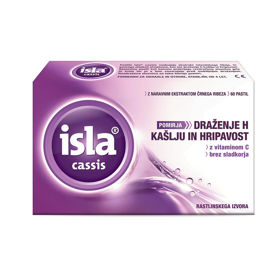Customer question:
Is Laryngitis in a child dangerous? Anonymous customer's question
Pharmacist's answer:
Laryngitis in children is usually a mild disease, but it is still essential to be aware of some factors that can affect the severity of the case. Laryngitis is an inflammation of the throat, especially the part of the throat called the larynx or vocal cords. It is often the result of a viral infection, but it can also be of bacterial origin.
The following symptoms most often manifest Laryngitis:
- hoarseness or loss of voice
- cough that can be dry or productive
- difficulties swallowing
- fever
Most cases of Laryngitis in children resolve independently and do not require special treatment. Providing the child with rest, sufficient drinking, and moist air is essential. Medicines sometimes relieve symptoms like antipyretics to reduce fever or cough suppressants. In some cases, Laryngitis can cause swelling of the throat, which can further lead to breathing difficulties.
If you notice severe breathing problems, consult a doctor immediately. If the child has Laryngitis but worsens or lasts long, consult a doctor. See a doctor if you notice any signs of dehydration breathing problems or if your child has a high fever that does not go down with standard measures. In any case, it is always best to consult a pediatrician, who can assess the severity of the case and advise appropriate treatment.
How to treat Laryngitis in a child?
Treatment for Laryngitis in a child is usually aimed at relieving the symptoms and allowing the body to fight the infection independently. Here are some general recommendations for treating Laryngitis in a child:
- rest, less voice use
- drinking liquids
- moist air
- avoidance of irritants
- steam inhalations
- antipyretics
In some cases, if the Laryngitis is of bacterial origin, the doctor may prescribe antibiotics. However, most cases of Laryngitis are caused by viruses, and antibiotics are ineffective in treating viral infections. If symptoms worsen or do not improve within a few days, it is recommended to consult a doctor. The doctor will be able to assess the severity of the case and advise on possible additional measures or medications.
Interesting reading: Inflamed vocal cords
Interesting reading: Laryngitis signs












 Facebook
Facebook
 Instagram
Instagram
 info@moja-lekarna.com
info@moja-lekarna.com

